McHugh, Jimmy and Dorothy Fields: two early hits and selected standards, 1928 to 1935
__________________________________________________
 An excerpt from the Jimmy McHugh biography at songwritershalloffame.org (with photos added, and minor edits made, by musicdoc1):
An excerpt from the Jimmy McHugh biography at songwritershalloffame.org (with photos added, and minor edits made, by musicdoc1):
In 1927 one of McHugh’s most important professional relationships began when he met lyricist Dorothy Fields. They began writing together and in 1928 they had a there first big hit with the enduringly popular “I Can’t Give You Anything But Love, Baby”, written far the all-black Broadway revue Blackbirds of 1928. Other songs written by them for this show were “Digga Digga Do,” Doin’ the New Low-Down,” and “I Must Have That Man”.
In 1930 they wrote another favorite, “On the Sunny Side of the Street”, for Lew Leslie’s International Revue. From this show came also the hit and future standard “Exactly Like You.” For The Vanderbilt Revue, also in 1930, they wrote “Blue Again”. For a 1932 Chicago Revue called Clowns in Clover, Fields and McHugh wrote “Don’t Blame Me.”
The team then moved to Hollywood where they worked on the films Love in the [Rough] (1930), Singin’ the Blues (1931), Cuban Love Song (1931), Dinner at Eight  (1933) and Clowns in Clover (1933). For the 1935 film Every Night at Eight, they wrote “I Feel a Song Comin’ On” and “I’m In the Mood For Love”.
(1933) and Clowns in Clover (1933). For the 1935 film Every Night at Eight, they wrote “I Feel a Song Comin’ On” and “I’m In the Mood For Love”.
Following the success of the 1935 films, McHugh and Fields co-wrote a new lyric based on an existing Oscar Hammerstein lyric for Jerome Kern’s “I Won’t Dance”. In the years that followed, Fields would work primarily with Kern, and McHugh found a new primary lyricist to colloborate with:  Harold Adamson. For the 1937 film Top of the Town, McHugh and Adamson wrote “Where Are You?” and then in 1937, they wrote the title song for a film called “You’re A Sweetheart”.
Harold Adamson. For the 1937 film Top of the Town, McHugh and Adamson wrote “Where Are You?” and then in 1937, they wrote the title song for a film called “You’re A Sweetheart”.
Other Jimmy McHugh biographies:
Wikipedia
AllMusic.com
JazzStandards.com
___________________
 The following is an excerpt from the Dorothy Fields biography by Gregory Robinson as found at Broadway: The American Musical, PBS.org, with a few minor edits; all photos added.
The following is an excerpt from the Dorothy Fields biography by Gregory Robinson as found at Broadway: The American Musical, PBS.org, with a few minor edits; all photos added.
Dorothy Fields
Born: July 15, 1905
Died: March 28, 1974
Fields, Dorothy (July 15, 1905 – Mar. 28, 1974), lyricist and librettist, was born in Allenhurst, N.J., the daughter of Lew M. Fields and Rose Harris. Her father, born Lewis Maurice Schoenfeld, was famous as a member of the comedy duo Weber and Fields, but left performing in the year of Dorothy’s birth to become a successful Broadway impressario. Although Lew Fields cautioned his children against pursuing careers in the theater, Dorothy’s two older brothers, Joseph and Herbert, also became successful on Broadway, the former as a writer and producer, and the latter as a writer and Dorothy’s sometime collaborator.
Dorothy Fields graduated in 1923 from the Benjamin Franklin School for Girls in New York City, where she excelled at English, drama, and basketball, and had her poems published in the school’s literary magazine. After her father quashed her attempt to land an acting job with a stock company in Yonkers, she worked as a teacher and laboratory assistant, while continuing to submit her verses to magazines.
In 1926 Fields met the popular song composer J. Fred Coots, who suggested that they write  some songs together. Although nothing memorable came out of this brief association, Coots introduced Fields to another composer and song-plugger, Jimmy McHugh. Through McHugh she got a job as a lyricist at Mills Music, Inc., where one of her McHugh number[s], “Diga Diga Doo,” [was featured] in the all-black hit, Lew Leslie’s Blackbirds of 1928.
some songs together. Although nothing memorable came out of this brief association, Coots introduced Fields to another composer and song-plugger, Jimmy McHugh. Through McHugh she got a job as a lyricist at Mills Music, Inc., where one of her McHugh number[s], “Diga Diga Doo,” [was featured] in the all-black hit, Lew Leslie’s Blackbirds of 1928.
After this initial success, the Fields-McHugh team collaborated on International Revue (1930), a flop despite two enduring songs, “Exactly Like You” and “On the Sunny Side of the Street.” The family of jazz pianist Thomas (“Fats”) Waller maintained that Waller, not McHugh, actually composed the melodies to “On the Sunny Side of the Street,” “I Can’t Give You Anything but Love,” and others,  and sold them to McHugh for a nominal fee. In any case, however, it is undisputed that Fields is the lyricist.
and sold them to McHugh for a nominal fee. In any case, however, it is undisputed that Fields is the lyricist.
From 1930 to 1939 Fields worked in Hollywood, first with McHugh, with whom she wrote songs such as “I’m in the Mood for Love” and “Dinner at Eight” for the movie musical EVERY NIGHT AT EIGHT (1935), and then with Jerome Kern. Kern and Fields first worked together on ROBERTA in 1935, and subsequent collaborations included I DREAM TOO MUCH (1935), SWING TIME (1936), and JOY OF LIVING (1938). In 1936, Kern and Fields won the Academy Award for […] for “The Way You Look Tonight,” from SWING TIME. Other Kern-Fields songs from this period that have gone on to become standards include “Lovely to Look At” and “A Fine Romance.”
____________________
Five Standards by McHugh and Fields
1928
- I Can’t Give You Anything But Love
- I Must Have That Man
The pair’s first two standards were introduced in Lew Leslie’s Blackbirds of 1928. The original Broadway production opened at Liberty Theatre on May 9, 1928 and ran for 518 performances. It was directed by producer Lew Leslie and starred Adelaide Hall, Bill Robinson, Aida Ward, and Tim Moore. Also in the cast were Mantan Moreland, Cecil Mack, and Nina Mae McKinney.
1930
- On the Sunny Side of the Street
- Exactly Like You
On February 25, 1930, Harry Richman introduced “On the Sunny Side of the Street” in Lew Leslie’s International Revue at the Majestic Theater in New York City. The show ran for ninety-five performances, and, although a flop, the Dorothy Fields and Jimmy McHugh score will long be remembered for producing the two hits, “On the Sunny Side of the Street” and “Exactly Like You,” both of which became jazz standards.
1935
- I’m In The Mood For Love — written for the Paramount motion picture Every Night at Eight in which it was introduced by vocalist Frances Langford
**************************************
All songs featured on this page have music written by Jimmy McHugh, and words written by Dorothy Fields
Early Hits by McHugh and Fields
1928 – Diga Diga Do and Doin’ the New Low-Down, both from Lew Leslie’s Blackbirds of 1928
Diga Diga Do
Duke Ellington and his Orchestra — recorded on 10 July 1928; issued on the 78 rpm single Okeh 8602, c/w “Doing the New Low Down”
.
The Hotsy Totsy Gang, vocal: Elizabeth Welch — recorded in New York on 27 July 1928
.
The Rhythm Maniacs – 1929 — A note at Dailymotion.com by the provider of another recording indicates that the name “appears to be pseudonym of a British band led by Arthur Lally.”
.
The Mills Brothers with music by Duke Ellington and his Famous Orchestra — recorded on 22 December 1932; issued in 1933 on Brunswick 6519, b/w “I Can’t Give You Anything but Love (Baby)”
.
Doin’ the New Low-Down
Duke Ellington and his Orchestra – 1928, vocal refrain: Irving Mills
.
Jack Pettis and his Pets – recorded 3 July 1928
.
The Hotsy Totsy Gang – vocal by Elizabeth Welch – recorded on the same date as Diga Diga Do (above) in New York, 27 July 1928
.
___________THE STANDARDS___________
1928
I Can’t Give You Anything but Love, Baby
From the site DorothyFields.co.uk
The tune was used in one of Fields’ and McHugh’s earliest collaborations, but was unpublished, and Dorothy wrote new lyrics for the music to provide a number for Delmar’s Revels (in either 1927 or 1928). Some sources say that the original song was a tribute to the superstar aviator Charles Lindbergh entitled I Can’t Give You Anything but Love, Lindy. However, this doesn’t seem to tie in with a story Dorothy told later, involving her overhearing the conversation of a poor black couple gazing at the stylish and expensive jewelery on offer in Tiffany’s display window. Apparently the man said “Gee honey, I can’t give you anything but love.”
Whatever the original was, the staging of the revised song in Delmar’s Revels was a couple of poor kids sitting on the front steps of a tenement building. The unknown actors were Bert Lahr and Patsy Kelly, and he sang the song to her. Harry Delmar hated the song and insisted it be removed from the show after the first night!
However Fields and McHugh clearly believed in it, for they included it in several songs provided for Lew Leslie’s Blackbirds of 1928 at the Liberty Theatre. Not everybody liked it – one critic called it “a sickly, puerile song“- but its detractors were vastly outnumbered by its admirers, and the sheet music and a recorded version by Cliff Edwards were massive hits.
From Wikipedia:
The song was originally introduced by Adelaide Hall at Les Ambassadeurs Club in New York in January 1928 in Lew Leslie’s Blackbird Revue. The revue later changed its name to Blackbirds of 1928 and enjoyed a long successful run on Broadway. In Blackbirds of 1928 the song was performed by Adelaide Hall, Aida Ward and Willard McLean.
Johnny Hamp’s Kentucky Serenaders – 1928
Connee Boswell – recorded 26 August 1935 with The Ramblers in Laren, Holland
.
Teddy Wilson & his Orchestra – New York, 19 November 1936 – Jonah Jones, t / Benny Goodman (as JOHN JACKSON), cl / Ben Webster, ts / Teddy Wilson, p / Allan Reuss, g / John Kirby, sb / Cozy Cole, d / Billie Holiday, v.
.
Valaida Snow – recorded in Copenhagen, Denmark, 1940
The provider says:
The Social Democratic Danish Prime Minister Thorvald Stauning, wanted during the early summer all US. Citizens out of Denmark, before USA maby joined the Allies. Valaida Snow didn’t listen to the warnings, and finally she was arrested by the half independent Danish Police, bustered for illegal drugs. She was very lucky that she was deported and escorted by the Danish police to neutral Sweden, and not handed over to the German Gestapo. Many myths have been since been told about this. On this video I want to tell the truth about what happened, and also give a short description about life in Denmark between 1939-1941, when Valaida Snow was living there. On the sound track you hear one of her four recor[d]ings from Copenhagen in 1940. This one is: ” I can’t give you anything but love” with the Danish saxophonist and band leader Winstrup Olesen. Please, enjoy.
.
Nat King Cole – date unknown
.
Judy Garland
Recorded for Capitol Records by Judy Garland with Orchestra conducted by Nelson Riddle, 26 May 1958; released on LP Judy in Love, 3 November 1958
.
(below) minus the introduction
.
Recorded for Capitol Records by Judy Garland with Orchestra conducted by Norrie Paramor, 8 August 1960; released on LP Judy in London, 1972
.
This performance is from The Judy Garland Show, a 1962 TV special (not part of the series with the same name that began in 1963). The special features Judy and guests Frank Sinatra and Dean Martin in concert. It was broadcast on 25 February 1962. A DVD of the special is packaged under the title Judy, Frank and Dean: Once in a Lifetime.
.
Episode #21 of “The Judy Garland Show,” taped 31 January 1964
.
Adelaide Hall filmed live in concert at the Riverside Studios in 1989 at the age of 87
.
Continue on to page 2
Pages: 1 2


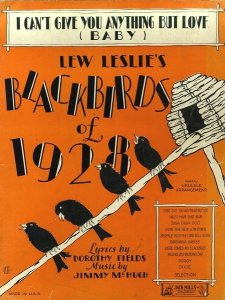

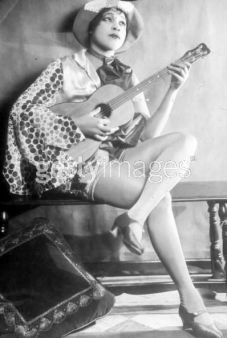






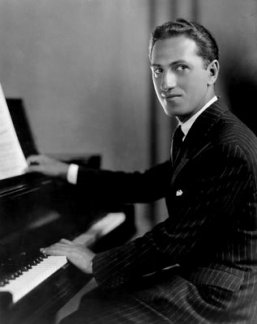

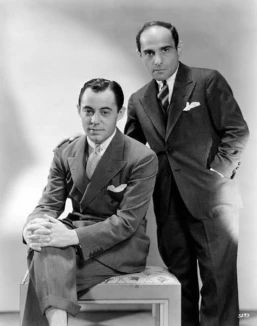

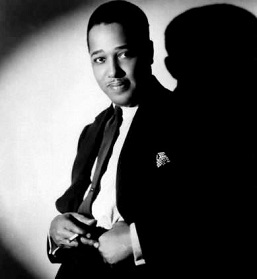


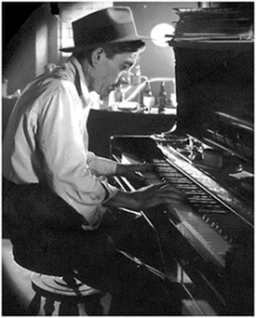
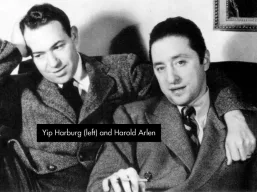
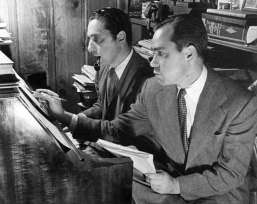



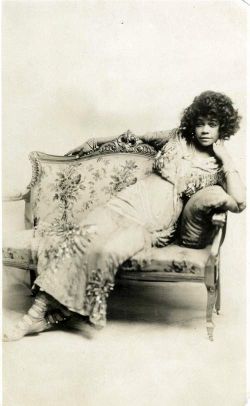





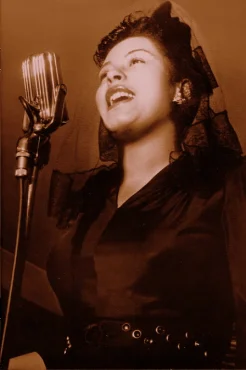




Jan 11, 2011 @ 11:02:57
great site ! Thanks for providing it .
LikeLiked by 1 person
Mar 20, 2011 @ 12:09:18
nice
LikeLiked by 1 person
Jan 01, 2019 @ 11:55:50
Still looking for Porgy by Fields & McHugh.
LikeLiked by 1 person
Jan 01, 2019 @ 16:00:40
Hi Stuart,
Please see the new page published on 5 January 2018, Porgy (McHugh, Fields) – © 1928 (m. Jimmy McHugh, w. Dorothy Fields).
LikeLike